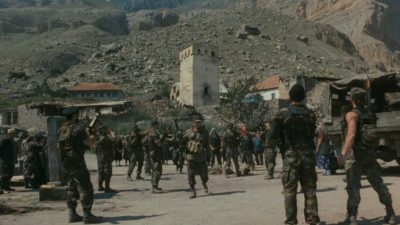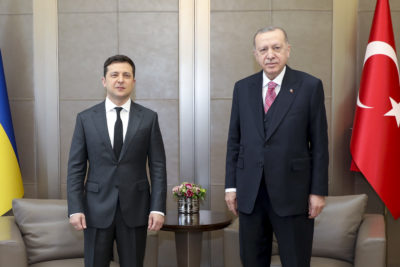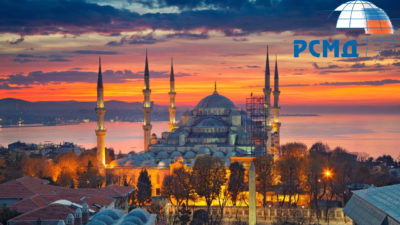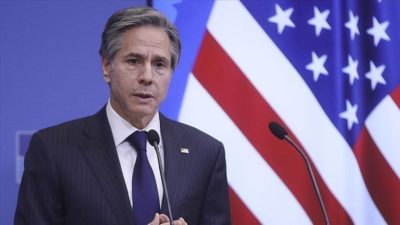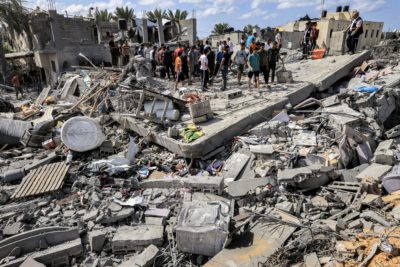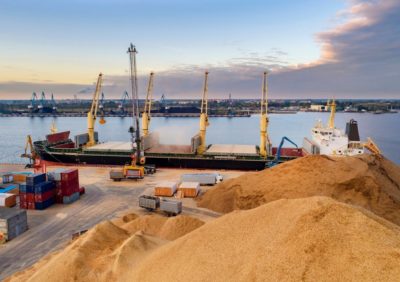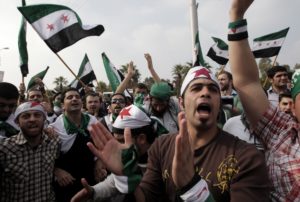The factor of mountain peoples of the Caucasus in Turkey's anti-Russian games...
From the end of the 18th century, the Ottoman Empire and later the Republic of Turkey began to use the Islamic-identity factor in the North Caucasus to neutralize the natural course of Russian historical expansion southwards and to restrict the Russian Empire’s access to the southern (Black and Caspian) seas and the Caucasus. After the brilliant victories of the Russian army over Persia in the first quarter of the 19th century, the Turks realized that Russia’s liberation mission towards Christian Armenians and Georgians would lead to a new Caucasian war with the Sublime Porte…
Turkey: palm of peace or torch of war...?
With the start of the Russian Special Military Operation in Ukraine, Turkey positioned itself as a mediator and supporter of the cessation of hostilities. Ankara initiated the Istanbul process of negotiations between Moscow and Kiev, facilitated the exchange of prisoners, and achieved the conclusion of an economically favorable “grain deal.” Additionally, Ankara received a promising mega-project “gas hub” from Moscow.
RIAC successfully hosts conference about regional dynamics in the Middle East, bringing together leading Russian experts
The Middle East, lying at the crossroads of Europe, Asia and Africa, is traditionally a region vital to the sphere of international relations, however, the term ‘Middle East’ encompasses an all but monolithic region; competition for regional influence between various states is evident and cleavages along various lines manifest themselves, including in terms of economic might, confessional, ethnic and language differences, political orientation, military capabilities. Nevertheless, a multitude of factors and shared challenges…
Russia-China Joint Approach to the Middle East
By repeatedly targeting the Houthis in Yemen and pushing for an escalation in the Red Sea, the US is jumping into the Middle East with a military and strategic mindset. The objective is to create space for Washington – and its global allies – to push back against the recent gains, i.e., normalization between Iran and Saudi and Arab normalization with Syria more than a decade after the start of the so-called “Arab Spring”, that Russia and China have made. A wider war in the region will, in the US calculation at least, re-politicize regional fault lines that might allow Washington…
Russia and Iran are comparing their approaches to regional security in Middle East and South Caucasus
Following the one-day visit of Russian President Vladimir Putin to the UAE and Saudi Arabia, a meeting of the leaders of Russia and Iran took place in Moscow on December 7, 2023. The talks between Vladimir Putin and Ebrahim Raisi lasted about 5 hours (including both in an expanded format and in private). The dynamics of regional events in the Middle East and South Caucasus require closer attention and active diplomacy from both the world’s leading players and key regional countries. Russia and Iran have accumulated considerable experience…
Peace in the Middle East Will not be Made-in-US
Despite the fact that the ongoing conflict between Israel and Palestine is a direct outcome of Washington’s flawed policies, the Biden administration is doing everything it can to turn this conflict into a wider war in the region. Providing US$3.8 billion in military aid to Israel versus US$100 million only for Gaza clearly demonstrates Washington’s priorities. For this reason, Arab states, including the UAE, otherwise signatories of the now infamous Abraham Accords, are not only criticising Israel but also showing who they think is the best possible global power that must side with them vis-à-vis Israel and in support of Palestine…
Middle East: Russia Calls For A Diplomatic Solution, While The United States Calls For A Military One
The conflict in the Gaza Strip has entered its third week, attracting the world’s attention. The UN Security Council has twice failed to adopt a resolution calling for the interruption of military activities, the protection of civilians and the delivery of urgent humanitarian aid to the 2.5 million residents of Gaza. However, the US vetoed both draft resolutions. At first, the US, the UK and France rejected the Russian draft resolution, despite the fact that 30 other states, including 17 Arab states…
Russia-Iraq: Mutually Beneficial Cooperation for the Good of Nations
Iraqi Prime Minister Mohammed Shia’ Sabbar Al-Sudani will visit Moscow in the near future, Minister of Foreign Affairs Fuad Hussein announced after meeting with Russian Minister of Foreign Affairs Sergey Lavrov on the sidelines of the UN General Assembly in New York. “The Iraqi side is working on completing necessary preparations for a visit by Prime Minister Mohamed Shia Al Sudani to the capital Moscow during the coming weeks,” Fuad Hussein said…
Is Turkey changing its tactic in the negotiations on the “grain deal”?
Amur Gadzhiev, head of the Center for the Study of Modern Turkey, has suggested that Ankara may be about to change its approach to the Black Sea initiative, and focus on a package approach to the protection of Russia’s interests and the terms of the deal itself. In other words, Recep Tayyip Erdoğan and Hakan Fidan will make an effort to persuade their western colleagues and the UN to respect Russia’s interests in order to revive the “grain deal.” Amur Gadzhiev, it seems, knows what he is talking about, and his comments accurately describe Turkey’s new tactics. Admittedly, as an impartial observer and reader in this regard, the present writer finds it rather strange that Ankara took this position…
Turkey expects the grain deal to continue. And what does Moscow expect?
The restoration of Russia’s interests was repeatedly noted publicly and clearly before and after the Russian government withdrew from the Grain Deal, or rather, suspended its participation in the Istanbul agreements of 2022. The terms of the grain deal return to the interests of Russia: the lifting of sanctions on the export of our agricultural products and fertilizers; the connection of the Russian Agricultural Bank to SWIFT; permission to import spare parts for agricultural machinery; and the repair of the main ammonia…
Syria’s Inclusion in the Arab League Marks Another Defeat for the US
For more than a decade, Washington’s “regime change” agenda in Syria involved not only defeating the Assad regime, but also forcing a territorial disintegration of the Syrian state. In the past few years, the US military presence in Syria has only served to prevent Syrian reunification. For decades, Syria and its allies – mainly Iran and Russia – worked as a durable alliance to defeat Washington’s agenda. However, with Syria’s formal inclusion into the Arab League after an 11-year-long suspension, Washington’s agenda…
Positive outcomes of the Arab Summit in Jeddah
The new world order, based on equality of all its participants and initiated by Russian President Vladimir Putin, is increasingly making its way in international relations. The results of the Arab summit, which just ended in Jeddah, Saudi Arabia, are a vivid example of this. This year’s Summit came amid signs that the oil-rich kingdom is increasingly using its vast wealth, rapidly growing “soft power” and its assertive new diplomacy to play a leading role not only in its own region, but in the entire Arab world. Over the past few years, Saudi Arabia has demonstrated its economic and diplomatic power to its full extent in an attempt to make the kingdom the centerpiece of global and regional geopolitics. The Arab summit was unanimously seen as strengthening…
